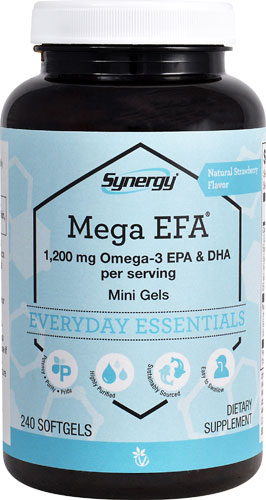If you’re like most people, you probably have a few questions when it comes to vitamins and supplements. Perhaps questions like “Which ones should I take?”, “What is the best brand to buy?”, or better yet, “Are supplements even necessary?”.
These are all valid questions, and with the supplement industry being as large and fast-growing as it is, it makes sense that there's some confusion around the subject. Many years ago, dietary supplements were available only at health stores or pharmacies. Now you can find them just about anywhere.
What is a dietary supplement?
To clarify, a dietary supplement is a product intended to support health. It can contain a mixture of vitamins, minerals, herbs, enzymes, botanicals and other ingredients.
It is important to remember that a dietary supplement is intended only to supplement a diet or lifestyle, and never to replace a healthy diet. Food should always be viewed as the number one source of nutrients. However, there are many reasons why strategic supplementation may be indicated, which are outlined below.
Reasons to consider supplementation
While food should always come first, there are many instances where food may not be enough. Some of these instances include:
- Digestive issues that impair nutrient absorption and digestion
- Inadequate nutrient intake from diet (due to things like picky eating, food allergies or sensitivities, certain health conditions that require eliminating certain foods, or lack of access to a variety of foods)
- Genetic variants that enhance your need for certain nutrients
- Taking certain medications that can interfere with the usability of nutrients
- Increased nutrient needs based on level of activity or unique life stage (ex: athletes, elderly, or pregnant women)
- Desires to achieve a specific health goal (such as cholesterol, digestive or brain health)
If any of these apply to you, you may want to consider working with a trusted healthcare practitioner to determine what supplements may best suit your unique needs. However, even if none of them apply, supplementation may still be a good idea. Here’s why...
In a perfect world, we all would get all the nutrients we need from our diets. Unfortunately, that's not usually the case, even for people who eat a balanced diet with plenty of variety. A 2004 study that evaluated the nutrient content of 43 USDA garden crops showed that there was a noticeable decline in 6 nutrients in crops between the years 1950 compared to 1999. This means that the same crops were producing less of certain nutrients over time, which is thought to be caused by things such as mass production, changes in soil and use of fertilizers and pesticides.
This fact, combined with the other reasons listed, reinforces why supplementation may benefit just about everyone.
If you’re wondering what you should do, here are some suggestions...
3 important supplements for everyone
1. High-quality multivitamins
Supplementing with multivitamins can help meet essential needs that aren’t able to be met by diet alone, even when eating a mostly balanced diet. Look for multivitamins that contain a mixture of minerals and all of the essential vitamins. These micronutrients help support all of the daily bodily functions that must occur for proper health.
Tip: Look for folate and vitamin B12 in their methylated forms for better absorption and utilization by the body. This will be indicated by the words methylcobalamin next to vitamin B12 (instead of cyanocobalamin) and methylfolate or methyltetrahydrofolate next to folate (instead of folic acid).
2. Omega-3 essential fatty acids
Most people do not eat enough fish (a well-known source of omega-3 fatty acids) or other natural omega-3 sources, so it is very easy to not get enough of this nutrient (or to simply not be reaping the benefits of consuming greater amounts).
These essential fats are linked to many aspects of health, including heart, brain and joint health. Because they have anti-inflammatory properties, omega-3 fats also may help with the body to maintain a healthy inflammatory response.†
Tip: Start with at least 1,000 mg of total omega-3s from EPA + DHA per day, which can be sourced from fish, krill and even algae.
3. Multi-strain probiotics
Probiotics are live, beneficial bacteria that are essential to the body, particularly the gut. Things like stress, illness, poor diet and aging can reduce the levels of these bacteria in the gut, which may have negative effects on the body. About 80% of the immune system is located in the gut, so probiotics may help support the immune system as well as overall digestive health.†
Tip: Since each strain of probiotic bacteria serves a unique purpose, aim to purchase a product that contains multiple strains to help cover many bases. Some products may need to be refrigerated, while others may be best tolerated when taken with food. Here are some additional tips for choosing a probiotic to consider.
Things to keep in mind
The U.S. Food and Drug Administration (FDA) is not required to determine whether dietary supplements are effective before they are marketed. Therefore, advertised claims for some supplements might not be backed by scientific evidence.
So as a consumer, it is important to always buy from reputable brands that use clean, non-GMO ingredients that certify potency and quality.
Some manufacturers get a stamp of approval from NSF International, Consumer Lab, Good Manufacturing Practices (GMP) and/or the United States Pharmacopeia (USP), who all assess for safety of supplements, quality and effectiveness.
Bottom line
Following a healthy, well-balanced diet is one of the best things you can do to ensure you’re meeting nutrient needs and helping manage disease. However, even the best diets can fall short of important nutrients that help promote optimal health. Strategic supplementation may be a missing piece that helps boost your health and leaves you feeling your best.
†These statements have not been approved by the Food and Drug Administration. These products are not intended to diagnose, treat, cure or prevent disease.




